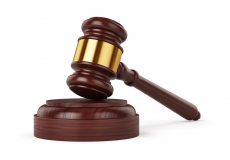Assault Lawyers in NSW
Our Criminal Law Team can assist you with matters related to assault, we have the experience and expertise necessary to ensure you receive the best possible outcome.
We’ve been defending the people of Newcastle, Lake Macquarie, Central Coast and the Hunter region since 1969 and have helped our clients to achieve the best possible outcomes in all Criminal Law matters.
We are used to dealing with the Police and know all the ‘ins and outs’ of the Courts and Justice system.
If you have been charged with any type of assault, contact our Criminal Law Team today to book a teleconference or appointment. We’ll fight vigorously to protect your freedom and rights.
What is a ‘Common Assault’ offence and what are the penalties?
It is an offence under Section 61 of the Crimes Act to assault another person. A common assault is an assault occasioned upon another person which does not result in actual bodily harm.
Actions that may constitute common assault include kicking, punching or hitting a person, without causing bodily harm. Common assault also extends to spitting on another person, mainly because of the possibility of an infection being transferred.
Common assault offences will be dealt with in the Local Court unless an election is made for trial in the District Court.
The maximum penalty which may be imposed in the Local Court is 12 months imprisonment or a fine of $2,200. If the matter is proceeds to the District Court, the maximum penalty is 2 years imprisonment.
To prove that you have made a false accusation, the police must prove that you personally made a false accusation (your accusation must first be proven false) and that the accusation was made deliberately. The accusation must have been made with the intention of making someone the subject of an investigation of an offence and that you knew the accused person was actually innocent of the offence.
Possible defences for making a false accusation include (but are not limited to) duress, necessity and self defence. To discuss these in detail and work out which defence may apply in your situation you’ll need to give our Criminal Team.
What is a ‘Assault Occasioning Bodily Harm’ (AOABH) offence and what are the penalties?
Assaults thereafter increase in seriousness from common assault to assault occasioning actual bodily harm to matters occasioning grievous bodily harm. There are further assault offences, such as assault police officer, assault during public disorder and assault with intent to commit a serious indictable offence.
An assault occasioning actual bodily harm is an offence upon Section 59 of the Crimes Act, which states an assault occasioning actual bodily harm is an assault where any person occasions actual bodily harm.
This offence will be dealt with in the Local Court unless an election is made for trial before the District Court. The maximum penalty which can be imposed in the local court is two years imprisonment, or a fine of $5,500 or both.
If the matter is proceeds to the District Court, the maximum penalty is five years imprisonment.
The term “actual bodily harm” includes “any hurt or injury calculated to interfere with the health or comfort of the victim, with such hurt or injury not being permanent but more than merely transient or trifling” (R v Donovan (1934)). Actual bodily harm can include psychological injury (R v Chan-Fook (1994)).
It is not necessary for the prosecution to show that there was specific intent to cause actual bodily harm and is sufficient for the prosecution to show that the assault was reckless.
What is a ‘Intentionally or Recklessly Causing Grievous Bodily Harm’ offence and what are the penalties?
The offence of intentionally causing grievous bodily harm is an offence under Section 33 of the Crimes Act which states that it is an offence to cause grievous bodily harm to another person with the intent to cause such grievous bodily harm.
An alternative offence if the Prosecution cannot prove that such grievous bodily harm is intentional for the offence to become is “recklessly cause grievous bodily harm” which states a person who recklessly causes grievous bodily harm (without the intent) is guilty of an offence.
The offence of recklessly cause grievous bodily harm will be dealt with in the Local Court unless an election is made at trial in the District Court. The maximum penalty which can be imposed is two years imprisonment in the Local Court, however if the matter proceeds Trial in the District Court, the maximum penalty which can be imposed is 14 years imprisonment.
The matter of grievous bodily harm with intent is a strictly indictable offence and the maximum penalty is 25 years imprisonment. To be found guilty of the offence of grievous bodily harm with intent, it must be proven beyond reasonable doubt that you wounded or inflicted grievous bodily harm upon another person and that act was done with the intention to cause such grievous bodily harm.
The offence of recklessly causing grievous bodily harm requires the Court to prove beyond reasonable doubt that you recklessly caused grievous bodily harm to another person.
The offence of grievous bodily harm has a standard non-parole period of seven years imprisonment. Therefore if an individual is found guilty of the offence and if there are no special circumstances the Court is to impose a non parole period of no less than 7 years imprisonment.
 Liability limited by a scheme approved under Professional Standards Legislation
Liability limited by a scheme approved under Professional Standards Legislation

















































